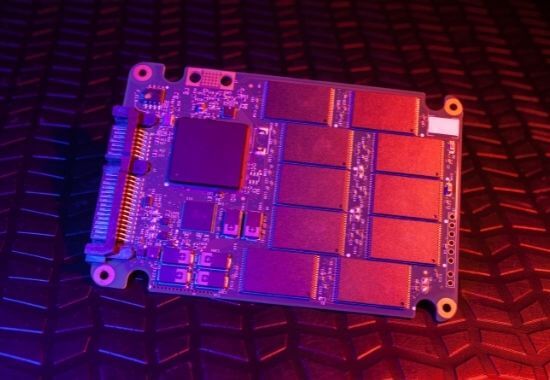It is important to know how much SSD capacity do you need. It can be challenging to calculate, so we’ll give you a few guidelines that will help you decide what SSD size is right for your needs. SSDs are becoming more and more popular due to their speed and reliability; however, they still have limited storage capacity.
In the beginning, people had 16-64 GB SSDs. But now they are not available to purchase and so it is hard to find 128 GB units. The maximum capacity now is 2 TB, but we can also see that some devices have 4 TB of more space on them. So what size do you need?
The goal of this article is to advise you on what size SSD to buy. You don’t want to spend too much money on something that will never fill up, but also you don’t want to fall short for the future.

Table of Contents
What Size SSD Does Your Computer Need?
You should think about how you want to use your SSD before buying one. You can ask yourself what you will do most often with it. For the most typical situations, we are going to put them here:
General Office Use: only for the operating system and some programs.
PC Gaming: operating system, programs and games.
Content Creation: operating system, programs and warehouse.
Professional use.
If users only want to have a faster PC with just the operating system and some programs, they will not need as much space in their SSD. With 250 GB or 256 GB, you will have enough space for your needs. You can buy the cheapest option that is available.
If, on the other hand, you have a gaming PC and in addition to the operating system and the usual programs you want to have your games installed, things change a lot and again, it will depend on what type of gamer you are since it is not the same to play 4-5 games to have 15-20 installed.
Considering that today’s PC games occupy an average of 30 GB per game (there are 10 and there are 60 or more GB), we would move towards a capacity of between 500 GB and 1 TB.
If you use the SSD for content creation or want to use it as storage, it will depend on what content you are creating. But usually, people like to get 1 TB or more of space.
Finally, suppose you are a professional user. In that case, it will depend on the type of content you will handle since a professional delineator who will use CAD programs is not the same as an audio engineer who uses Pro Tools.
In any case, here the necessary capacities will vary between 500 GB and 2 TB depending on this.
What Size of SSD is Right For You?
If we have to calculate the average PC user, we will say that with 500 GB, you will have plenty for most scenarios.
Even if you are a gamer user and want to have your games installed, you will have plenty of space for a good handful of them ( and if necessary, you can always uninstall one to make room, right?
Nowadays the capacity of SSDs is gradually increasing, and in fact it is the 500/512 GB drives that have a better capacity/price ratio and are more profitable to buy. However, it is also true that the devices of 1 TB are coming in strong and every time, we can find them for less money.
How Long Should an SSD Last?
SSDs are not eternal. As with any other electronic device, SSDs have a limited lifespan. The most important thing is to know the average life expectancy of your SSD and be aware that it will inevitably fail at some point in time.
This figure can range anywhere from three to five years for desktop drives, while for laptops, you should assume about two to three years.
SSD lifespan is also affected by the number of write operations exposed to, so for SSDs that are constantly being written to, you should consider a shorter life expectancy than SSDs that are not used often.
How Can I Tell If My SSD Needs Replacing?
There are some warning signs your SSD may need replacing. SSDs will fail more quickly if they are constantly being written to, so keep an eye on how often you access the drive and try not to overuse it.
If your SSD produces errors when reading or writing data, this may signify that it’s time for a new SSD. If any of these warning signs start occurring in your SSD, get in touch with us to arrange a replacement.
Which Type of SSD is Fastest?
The amount and size of SSD will affect the speed, so if you want to know which one is faster, we have to consider these two factors.
If your SSD has a capacity of 500 GB or more, it will usually be much faster than an SSD with 250 GB because there are fewer write operations for it to do.
SSDs also have a sequential read and write speed, so an SSD with a capacity of 250 GB will usually be much slower than the previous one because more files need to be opened.
Conclusion
With a growing number of applications, photos and videos to store, it isn’t easy to know how much SSD storage is enough.
Luckily we have some guidelines that should help you decide what size will work best for your needs.
Keep in mind that these are just general rules-you might need more space depending on the type of data stored or running multiple programs at once, so make sure before buying an SSD drive!







